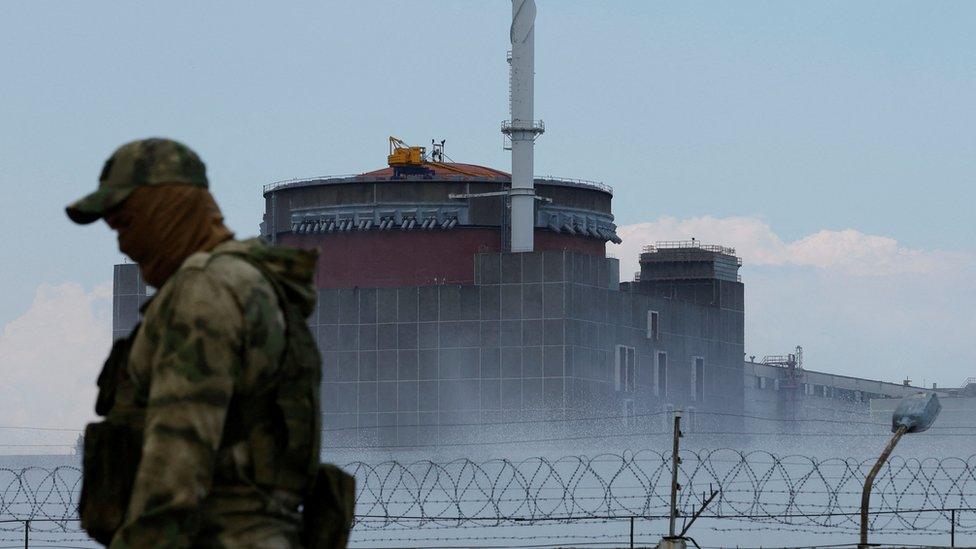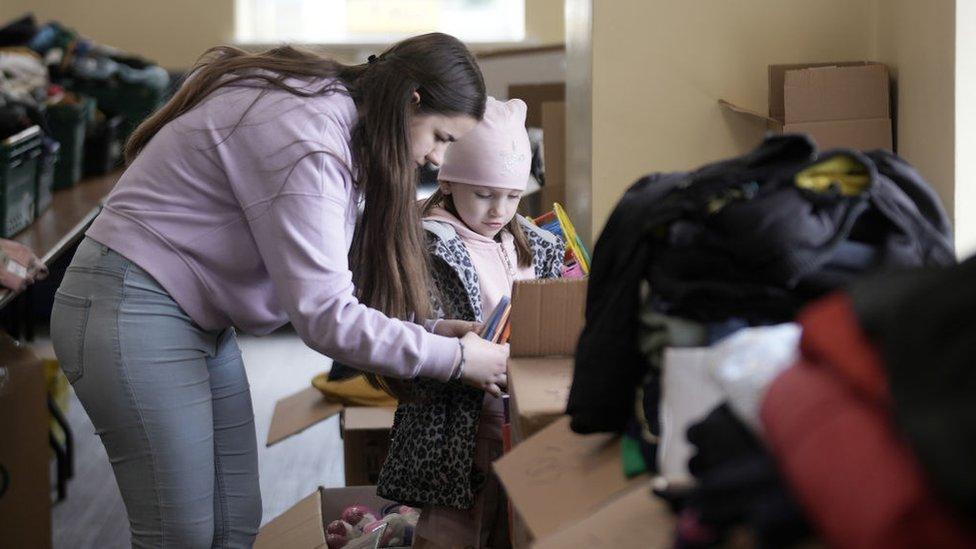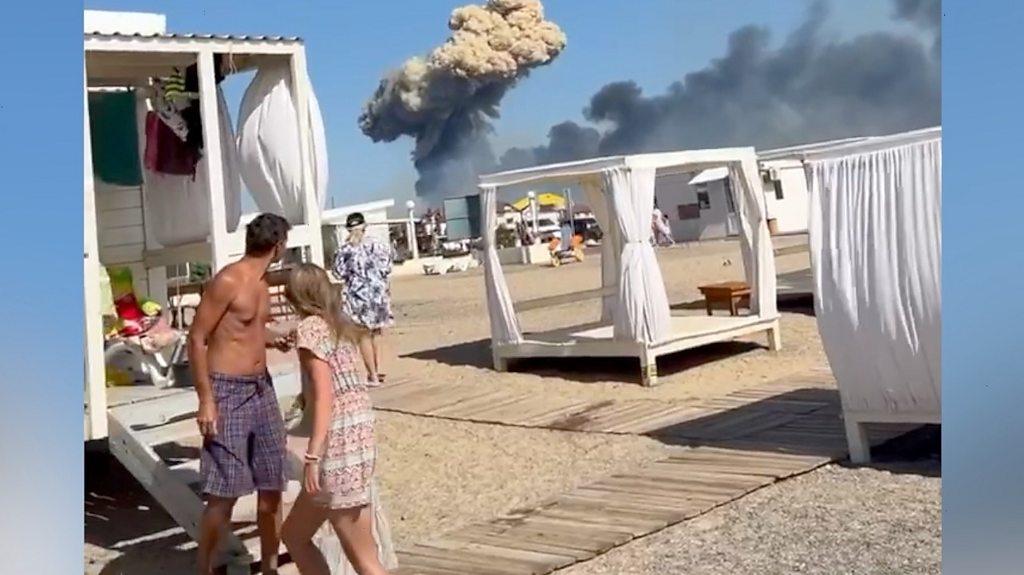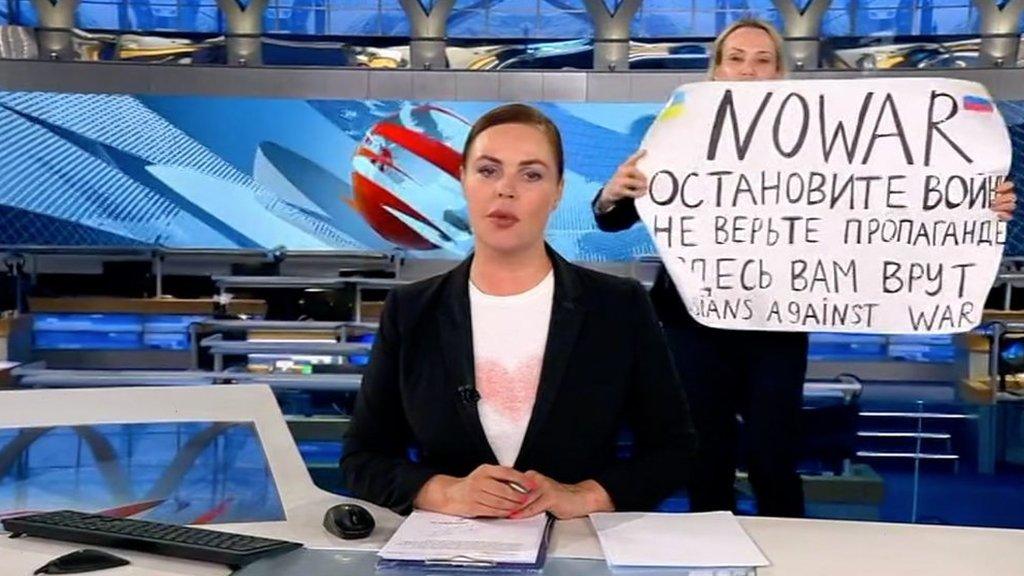Ukraine round-up: Is Russia running out of troops?
- Published

On the ground, one of the major flashpoints in the Ukrainian war is the Zaporizhzhia nuclear power plant.
The facility is Europe's largest, and was seized by Russian troops in March. It saw shelling last week, with Kyiv and Moscow blaming each other for the attack.
Foreign ministers from the G7 group of industrial powers have urged Russia to "immediately hand back control" to Ukraine, warning that a failure to do so raises the risk of a nuclear accident.

Ukraine says Russian aircraft destroyed in Crimea blasts
Watch: Crimea beachgoers run after airfield explosion
What exactly happened when a series of explosions hit a Russian airbase in Crimea is still becoming clear.
Ukraine has said several Russian warplanes were destroyed; Russia denies this and that the explosions were the result of an attack.
Crimea was annexed in a disputed referendum by Russia in 2014. Internationally it is still seen as part of Ukraine.
An attack by Ukraine on Russia in Crimea would be a major escalation.
But Ukraine has denied responsibility for the blasts, which Russia says were caused by ammunition being detonated.
In one of his regular addresses Ukrainian President Volodymyr Zelensky said: "This Russian war...began with Crimea and must end with Crimea - with its liberation."

Is Russia struggling to find troops for Ukraine?
By Vitaliy Shevchenko, BBC Monitoring
There are indications the Kremlin is running out of troops for its war with Ukraine.
Regional authorities in Russia are pursuing a campaign to recruit volunteer fighters, but it is not getting much traction, one report says.
According to independent Russian website Mediazona, at least 25 Russian regions are now trying to form volunteer battalions.
"The local authorities are sparing no effort in advertising the battalions or reporting about them in the media, but the results of their efforts fail to impress," Mediazona says.
Local administrations are offering lavish payments for fighting in Ukraine, but some have found only a fraction of the fighting force they are trying to assemble, the report says.
Earlier today, the UK Ministry of Defence said the volunteer battalions being raised across Russia will likely form a large part of a new army corps.
However, "given very limited levels of popular enthusiasm for volunteering for combat in Ukraine", it will probably be difficult for Russia to find the required number of troops, the British military said.
Several independent Russian media outlets said last week the private military company known as Wagner was trying to recruit fighters for Ukraine among inmates at Russian jails.

Russian journalist faces criminal case for 'discrediting army'
Back in March Russian journalist Marina Ovsyannikova made headlines around the world by protesting live on TV against Russia's invasion of Ukraine.
She has not let up in her opposition to the war since, protesting with an anti-war poster near the Kremlin in July.
On Wednesday her lawyer Dmitry Zakhvatov said the Russian authorities had charged her with spreading false information about the Russian armed forces as a result of this latest protest.
Ms Ovsyannikova, 44, wrote in a post on social media that her apartment was raided by law enforcement officers in the early hours of Wednesday.
"They scared my young daughter," she added. The journalist was later detained.
This was her protest from March.
Watch: Anti-war demonstrator disrupts Russia's state TV news

Quarter of UK refugee sponsors do not want to carry on

A quarter of sponsors of Ukrainians as part of the Homes for Ukraine scheme do not want to continue the arrangement beyond six months, the UK's Office for National Statistics (ONS) has found.
Launched in March, the scheme has seen about 75,000 refugees arrive in the UK.
Sponsors agreed to provide accommodation in their own home for a minimum of six months.
But there are concerns at what will happen when those arrangements reach the end of that period.
The scheme was set up by the government to help those fleeing Russia's invasion of Ukraine, and worked alongside the Ukraine Family Scheme - which allowed refugees to join relatives already living in the UK.
Related topics
- Published9 August 2022

- Published14 March 2022
